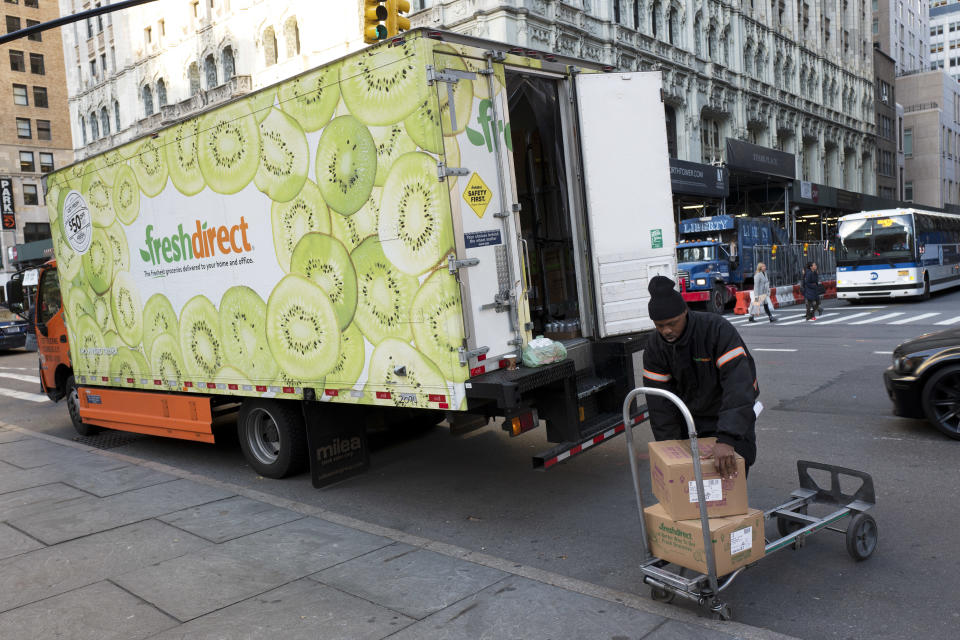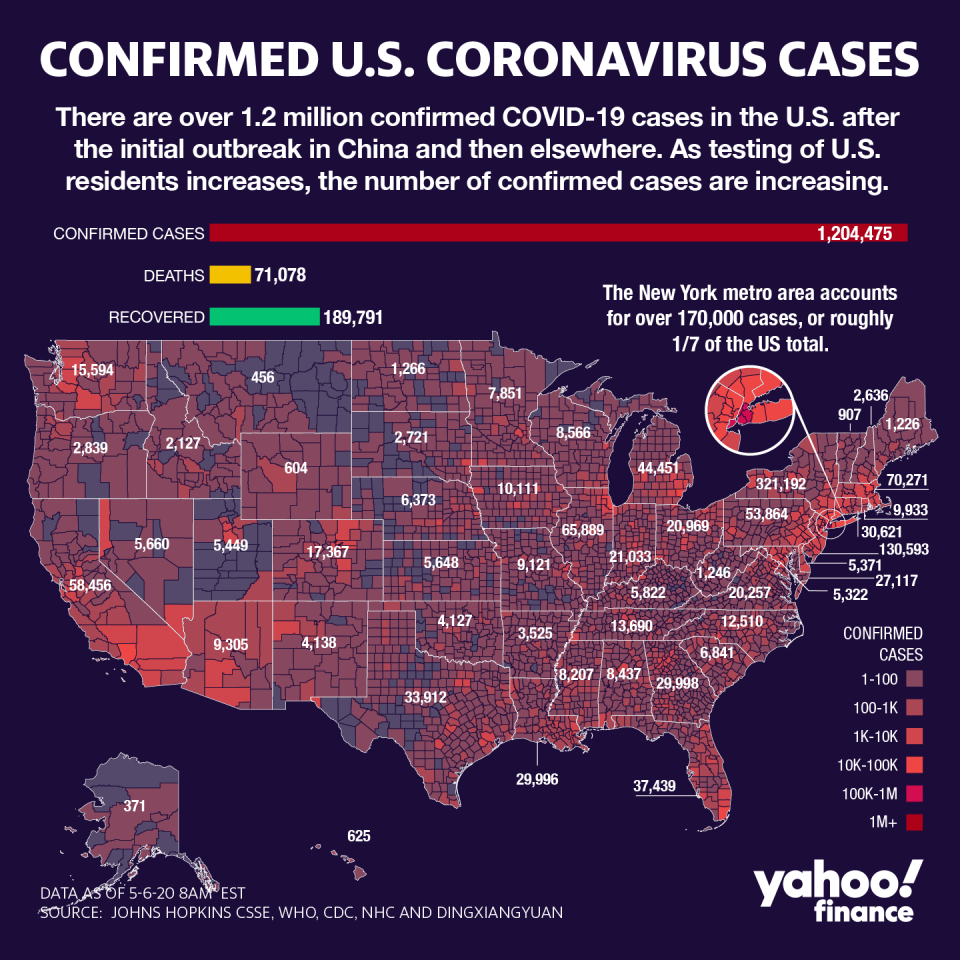'It's like a snow globe': How coronavirus will permanently affect consumer behavior

It has now been two months since companies began telling workers who could work from home to do so in an effort to limit exposure and transmission of the novel coronavirus.
The “new normals” of the situation — physical fear, economic fear, cabin fever, home cooking, telehealth, remote work, high unemployment, and a sense of helplessness — have firmly established themselves as the status quo.
It’s clear there will be a new set of rules in the post-COVID landscape, from less capacity in restaurants to more masks and caution; but what will this do to behavior? What will happen to the new habits and routines people are adopting at home? This is a burning question that investors, academics, business owners, employees — pretty much anyone — is probably posing.
The answer, according to Tom Meyvis, who studies consumer behavior at NYU’s Stern School of Business, is “we, of course, don’t know.”
“It’s hard to predict how things evolve,” Meyvis told Yahoo Finance. “There are a few ways in which these learned habits may persist, and there’s a few ways there may be a more fleeting or even opposite effect.”
From a consumer behavior perspective, countless people have dramatically increased their online spending with stores closed — including things like grocery delivery. Historically, online ordering has been slower to catch on with older demographics, but since these groups are at more risk of getting seriously sick with COVID-19, they have been more motivated to shop online.
This isn’t just for older people. Some practices that seem to have a moat around them from online alternatives may be changed, like seeing furniture in showrooms or looking at real estate. For businesses with large office staffs, more people might be working from home.
“If I used to go to showrooms and it turns out that I don’t need to and it works fine, then some of the uncertainty people had about shopping online may disappear,” said Meyvis. “And that’s something that may last.”
The status quo is strong, and it’s finally gone
Jonah Berger, a professor at Wharton and author of a recent book about behavior, pointed out that usually people don’t try new things and prefer the status quo, called the “status quo bias.” But because countless previously incumbent behaviors are impossible or under siege now, millions of people are being forced to do new things — which invites uncertainty about what happens next.

This isn’t just from an inertia perspective, because a new status quo has been established, but a matter of familiarity. Like the proverbial Green Eggs and Ham, maybe things that companies and people pushed against, like working from home and telemedicine, isn’t so bad after all?
“Sure, they can’t do telemedicine for everything but for a lot of things patients and doctors might realize, ‘hey it’s not that bad,” Berger said. “In a variety of things from consumer choice to business decisions, this has shaken up habits.”
For some companies, this can be a huge opportunity, Berger said.
“I’ve seen a number of brands do things like cutting the cost of a first-time purchase to make it easy to experience offerings because now is an opportunity to build a habit,” said Berger. “It’s like a snow globe and at least for a few minutes you have the opportunity to change the landscape.”
If companies get something to catch on now when consumers are more acclimatized to change, preferences might be sticky — and there might be a chance to create a new status quo. But only, Berger said, if companies are smart and recalibrate their marketing to the COVID crisis instead of running tone-deaf campaigns.
Another layer of uncertainty
Berger and Meyvis both pointed out that there’s not much of a precedent for this. Right now, the country is in the midst of an economic crisis — but also a public health one with specific behavioral restrictions.
But we can look to parts. In an economic crisis, Meyvis said there have been many studies about behavioral changes that go past the fact that people are more frugal because money is tighter.
“When people feel constrained they are more likely to spend more on material things rather than experiences,” said Meyvis, who explained that the reason is often because one is fleeting and one isn’t.
There are other measured phenomena that happen, like even wealthier people who decide to cut back even though they’re not being pinched.

“Even though you have good income savings, you may still not want to spend as much money as you used to because the mood of society has changed,” said Meyvis. “You may not feel like splurging on a luxury product.”
Another hypothesis is that people might react similarly to the generation that lived through rationing during the world wars and never kicked the habit of having large inventories in the pantry and small portions on the plate.
“People might start stocking up and becoming preppers in some way,” said Meyvis.
Another aspect of the post-COVID uncertainty is how we react to things we can’t have, which often makes them more desirable.
On the one hand, there’s been many bold predictions about the population redistributing from cities to more rural areas, empowered by the new norms of telecommunication. (Barclays says that putting 7,000 people in an office building may be a thing of the past.) Some people might relish it, but others might be longing for human contact since they’ve been starved of it.
“There may be a renewed appreciation of certain things,” said Meyvis. “Not being able to have all these things — to be able to travel; meetings in person — makes them seem more desirable, gives us a rosy view.”
This however, might not be a warranted positive image, Meyvis added: “Right now a lot of people are probably thinking shopping in a mall would be great without realizing that when we could do it — it wasn’t a great experience.”
--
Ethan Wolff-Mann is a writer at Yahoo Finance focusing on consumer issues, personal finance, retail, airlines, and more. Follow him on Twitter @ewolffmann.
Warren Buffett explains the simple reason the U.S. will never default on its debts
5 key ways healthcare could change post-coronavirus: analysts
Here's a list of CEOs taking pay cuts amid the coronavirus crisis
Follow Yahoo Finance on Twitter, Facebook, Instagram, Flipboard, LinkedIn, and YouTube.

 Yahoo Finance
Yahoo Finance 